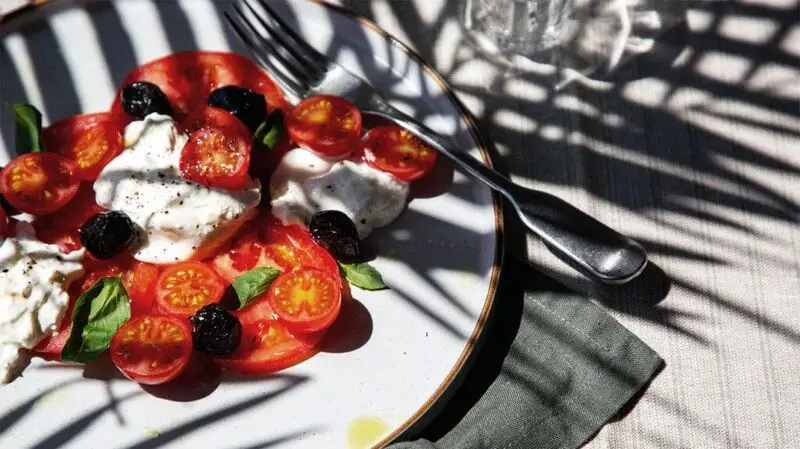- Past studies show that people can help lower their osteoporosis risk through certain lifestyle habits, such as eating a well-balanced diet and maintaining a Healthy weight.
- A new study says following a low-calorie Mediterranean diet coupled with physical activity may help reduce weight loss- and age-related bone mineral density decline in older women who have metabolic syndrome and who have obesity or overweight.
- This energy-reduced version of the Mediterranean diet still contains Healthy foods such as fruits, vegetables, legumes, olive oil, and fish, but with controlled portion sizes.
According to the International Osteoporosis Foundation, about one in every three women and one in every five men over the age of 50 live with osteoporosis — a disease where bones weaken and become prone to fractures.
Due to our
Past studies show there are some ways in which people can help reduce their risk of developing osteoporosis, such as eating a well-balanced diet rich in
“As people age, especially women after menopause, BMD (
“Identifying effective and sustainable strategies to preserve BMD is crucial to prevent these outcomes and mitigate the public health burden related to age-related bone loss,” he said.
García-Gavilán is the co-lead author of a new study recently published in the journal
For this study, researchers used study participants from the
This study included 924 male and female participants with an average age of 65, all of whom had metabolic syndrome and were either overweight or obese.
“Metabolic syndrome is a collection of metabolic and health issues that often occur together, including high blood pressure, elevated blood sugar, excess abdominal fat, low levels of HDL cholesterol (healthy cholesterol) and high levels of triglycerides (another fat molecule) in blood,” García-Gavilán detailed.
“Individuals with metabolic syndrome are at an increased risk of heart disease and diabetes. We focused on this group because they are more likely to receive recommendations to lose weight for their health, and weight loss can influence bone density, making them a critical population for this type of research,” he said.
Study participants were randomly placed in one of two groups — one following an energy-reduced Mediterranean diet (which is lower in calories than the standard diet) and increased physical activity, and the other group followed a normal Mediterranean diet with no extra exercise.
“An energy-reduced Mediterranean diet is a variation of the traditional Mediterranean diet that contains fewer calories. It still emphasizes healthy foods such as fruits, vegetables, legumes, olive oil, and fish, but with controlled portion sizes to support weight loss. The traditional Mediterranean diet is also a healthy dietary pattern, but it (is) typically food consumed without specific limits on portion sizes.”
— F. García-Gavilán, PhD
Study participants also had their bone mineral density (BMD) measured at the start of the study, as well as at one and three years of follow-up.
“The Mediterranean diet has been associated with many health benefits; however, its specific effects on bone health during weight loss and aging have not been thoroughly investigated,” García-Gavilán said. “Given that physical activity also contributes to maintaining bone strength, we aimed to explore whether combining both in a structured lifestyle intervention could protect against bone loss in older adults, particularly in the context of intentional weight reduction.”
Upon analysis, researchers found that study participants who followed an energy-reduced Mediterranean diet and increased their physical activity produced significant beneficial effects on BMD, especially at the lumbar level in the lower back, over three years among women.
“This finding is significant because it indicates that weight loss doesn’t have to compromise bone health,” García-Gavilán explained.
“[A] well-balanced, reduced-calorie Mediterranean diet combined with physical activity can assist older women not only in losing weight but also in protecting their bones, particularly in the spine, where bone loss can lead to serious fractures and disability.”
— F. García-Gavilán, PhD
Scientists did report there were no BMD changes observed in male participants.
MNT had the opportunity to speak with Mir Ali, MD, a board certified general surgeon, bariatric surgeon and medical director of MemorialCare Surgical Weight Loss Center at Orange Coast Medical Center in Fountain Valley, CA, about this study.
Ali commented he thought it was a good study that shows the importance of diet and exercise in maintaining bone health.
“Loss of bone mineral density, especially as you age, can make a person prone to fractures and weakness. And a fracture in older patients, like in their 70s and 80s, can be a very significant thing. Somebody fractures their hip in their 70s, there’s a [20-30%] mortality associated with it. So it’s a serious thing, and it’s important to try to reduce that.”
— Mir Ali, MD
“In addition to looking at the diet and exercise, other things we recommend are vitamin D and calcium supplements, so comparing groups that took these supplements versus not taking these supplements, I think would be helpful,” Ali responded when asked what he would like to see next in this research.
“And even further, going down to which supplement or the amount of replacement is ideal to prevent bone loss,” he said.
As what we eat can impact our bone health as we age, we asked Monique Richard, MS, RDN, LDN, a registered dietitian nutritionist and owner of Nutrition-In-Sight, for her top tips on the best diet readers should follow for good bone health.
Richard recommended:
- Mimicking dietary patterns, as culturally appropriate, and accessible, rich in fruits and vegetables, unsaturated fats, lean protein and herbs and spices, such as the DASH diet and Mediterranean Diet which have strong evidence in contributing to overall health and longevity.
- Assessing overall dietary intake of bone-building and bone-loving nutrients such as profile, source, and amounts of protein, vitamins D, K, C, E, calcium, potassium, magnesium, and selenium by working with a registered dietitian nutritionist (RDN).
- Incorporating foods rich in nutrients associated with bone density, such as leafy greens, fruits rich in fiber, fish like sardines, salmon, tuna, tofu, and dairy.
- Gauging additional dietary and lifestyle behaviors that may impact bone health, including soft drink intake, sugar, caffeine, and alcohol intake, as well as whether a person is a smoker has a genetic predisposition to osteoporosis, osteopenia, and/or specific nutrient pathways affecting absorption and the bone matrix in addition to their current health status.
Richard also recommended regularly incorporating weight-bearing movement two to three times a week, such as resistance training using free weights, weight machines, or your own body weight (plyometrics), pilates, yoga, and tai chi, in addition to regular aerobic-cardio activity such as walking, running, dancing, or swimming.
“As we age, continued activity and quality of diet remain important priorities. Bone Health is an inside-out-outside-in job with adequate nutrition needed as a foundation to keep that skeleton strong and vibrant.”
— Monique Richard, MS, RDN, LDN






